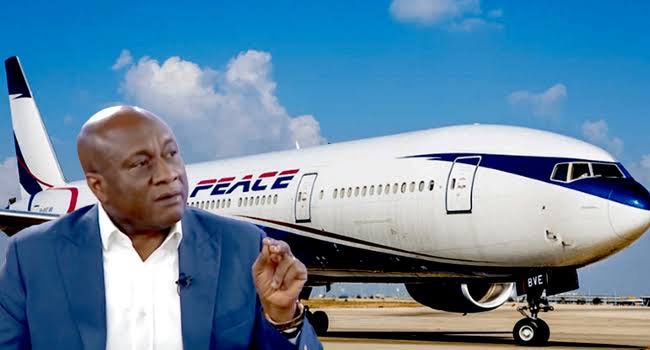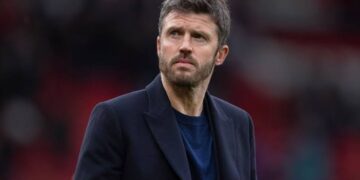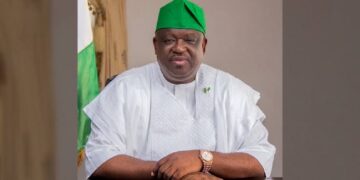As reported by journalists on Wednesday, Air Peace, Ibom Air, United Nigeria, Max Air, and other Nigerian airlines denied being blacklisted by international lessors.
Journalists had earlier reported that 13 domestic airlines had been blacklisted by international lessors for refusing to pay lease payments, but the airlines said the blacklisting was in respect of Nigeria and not the carriers.
They noted that they do not owe anything to the lessors and currently have no issues with them. They further explained that the issues with the lessors affected previous airlines and not the current airlines.
The Chairman and CEO of United Nigeria Airlines, Obiora Okonkwo, told Journalists that all four aircraft in the United Nigeria Airlines fleet are owned by the company and are not bound by lease agreements.
“We have four airlines and they are fully owned by United Nigeria Airlines. Leasing is part of airline business. We have zero obligations with our lessors and they are happy with us. The issue is that there is a blacklist on Nigeria and that has to do with country risk and the relationship with airlines in the past,” Okonkwo revealed.
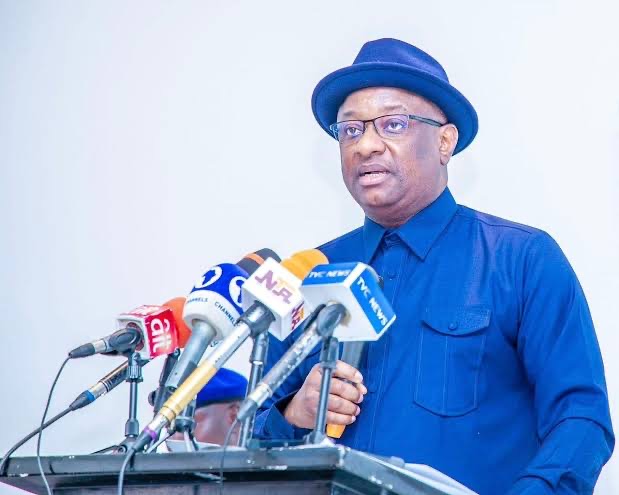
He assured that the Minister of Aviation is working hard to resolve the issue.
“What we are suffering now is betrayal from lessors. These lessors are the ones that even come and take back the aircraft from Nigeria airlines unlawfully,” Okonkwo explained.
He reiterated that dry leasing is banned in Nigeria but that has nothing to do with the airlines’ current flights.
It was also reported that few Nigerian airlines are able to secure dry leasing contracts for aircraft which are more profitable for airlines. In a dry leasing contract, the owner hands over the aircraft to the lessee without the crew. Neither party is required to obtain an airline license unless the aircraft transports people or goods for payment or rental. In this type of lease, the lessee usually retains operational control, including legal responsibility for the aircraft.
However, in a wet lease agreement, the owner provides both the aircraft and the crew. The owner retains operational responsibility, including performing maintenance, obtaining insurance, and other legal obligations. This means that most of the profits from operating the aircraft are paid to the lessor, not the airline.
However, Air Peace chief executive officer Allen Onyema said his airline has never applied for a dry lease agreement with any lessor, pointing out that there is no reason for it to be blacklisted in the first place.
The airline’s chief executive officer said all of its aircraft are fully owned by Air Peace.
Annie Essienette, General Manager of Marketing and Communications at Ibom Airlines, told Journalists that Ibom Airlines has never missed a payment and has no issues with its lessors.
“In the course of discussions with some lessors, they have jumped around names. We take our lease agreements very seriously and we don’t take anything for granted.
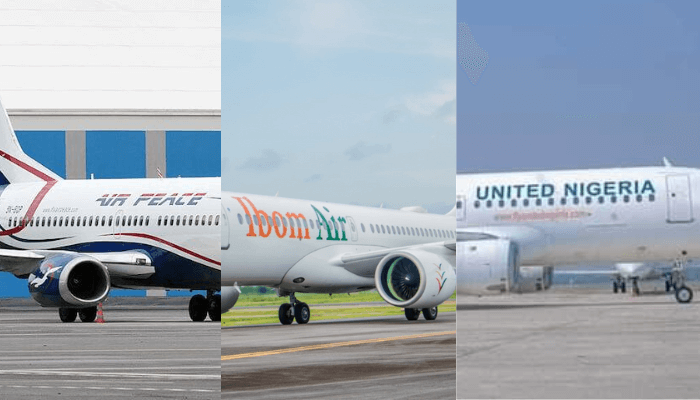
“Lessors want to do business with us all the time because of our past record. Even when we disengage with them, we put out a statement to state that we have disengaged,” Essienet said. She explained that the naira-to-dollar exchange rate and its scarcity had depleted the airline’s inventory in Nigeria over the years. She said at one point, the airline ran out of dollars to buy and import plane parts from other countries because the airline does not manufacture the parts in-house.
Max Air, through its lawyers, said it operates a large fleet of 737 and 747 aircraft, all of which are fully paid and owned by the company.
The airline said it does not have any leasing business in its domestic and international flight operations.
“It is important to reiterate here that our client owns all her aircraft and do not lease aircraft,” the airline said.
“In support of this and contrary to your allegations, our clients have not entered into any aircraft leasing agreements with anyone and are not indebted to anyone for refusing to pay lease payments.
“All other allegations you have published are categorically rejected as they do not reflect the true ownership of our clients’ aircraft,” she added.
In a recent interview, Aviation Minister Festus Keyamo said local airlines are at a disadvantage as they cannot avail aircraft on the same terms as international airlines.
“There is no airline in the world that buys 100% of its fleet.
It’s not possible. Statistics show that of every 100 aircraft flying around the world, about 70% are leased from leasing companies or aircraft manufacturers. So why can’t we use these leasing agreements to give more power to local operators?
“This is the key to being able to serve these international routes because you can’t compete with someone who has access to the aircraft on better terms than you. Wet lease agreements are very expensive.
“He said the government was trying to help local airlines to take advantage of these lease agreements and further reduce the rates for international flights.
He said, “Nigeria is on the blacklist to get dry lease aircraft around the world. This is the diplomatic visit I have been undertaking since I came.
“I have been trying to assure aircraft manufacturers such as Airbus and aircraft leasing companies that we can protect their assets if they bring them into Nigeria because what they want is the assurance from the government that when these assets are brought into Nigeria, we can allow them to take their assets away if there are breaches to these agreements.”
He said the problem that lessors faced in the past was that when they brought their assets into the country if there was a breach of contract, they faced difficulties because of court orders and politics that they had to take the aircraft back. This meant huge losses for the lessors.
“So, what they want is that if they bring their aircraft into the country on dry lease, they can take them out when there is a breach. It is the government that will assure these leasing companies and creditors to bring in their aircraft.”


